Who are the Hakki Pikki tribals of India? How is life of the hakki pikki tribals?
Of the large number of tribals relocated from forests to main lands by the government, the Hakki Pikki tribals are one of them, who have settled in southern parts of India. These people are specialists at catching birds and have honed in on the art for ages.
They speak in a language of their own called the Adivasi language. The language is close to Gujarati but does not have a script of its own. Neither do these people know where they descended from. Right now, there are about 20 colonies of roughly 100 families each, located around southern parts of India, especially Karnataka, Andra Pradesh, and Tamil Nadu.
These people are considered scheduled tribals by the government, which has offered them lands at specific places a couple of generations back. Since the government no more allows entry into the forest and labels killing animals in the forests an offence, these tribals no more hunt birds for survival. Right now, the tribals have adapted to the way of living in villages and have learned the local languages for making a living.
These tribals have turned into workers in a wide variety of fields. Unlike the Kuruba tribals who work as labourers in farms (Read the article here), the hakki Pikki tribals are smarter, and so work in a variety of fields for their bread and butter. One of the main sectors is the ayurvedic hair oil business. Since they carry the knowledge of their ancestors about all the plants in the forest, they put them to good use to make a variety of oils that earn them a living.
On my way past the HD Kote taluk during my all-India cycle tour, I was informed about these tribals. I was told by many locals that these tribals are smart enough to figure out a living and some even go abroad to make riches. This turned out to be extremely surprising for me. Although I was informed that these tribals do not speak fluent Kannada and that it may be dangerous to go over, my curiosity drew me towards them. I had this urge to know what the psychological state of these tribals is, that allowed them to improve their living standards, starting from living in the forests.
Upon reaching their place of settlement called Tiger Block (Named so during the Wadiyar dynasty times as the King used to hunt for tigers here), I approached a house at one corner of the locality and requested them if I could pitch a tent there for the night. The lady who I Requested, told me that she would ask her husband and let me know. Soon, her husband walked out and apprehensively agreed to my request.
What happened after that is a beautiful sequel of events, as I received loads of love from their community, which I will find extremely hard to explain. People were overly welcoming and made sure I slept inside their house.
So how is the life of the Hakki Pikki tribals exactly?
Table of Contents
ToggleHow is the life of Hakki Pikki tribals?
Although nobody I saw there seemed to be educated, they all had their ways of earning and nobody seemed to be working for anyone else for bread and butter.
These tribals have figured out multiple ways of earning that do not involve any sort of labour work. In fact, I couldn’t see anybody in the locality who made a living as a labourer working for somebody higher up the class. An old grandma ran a tea shop, while the grandpa ran a fish farm. Some had land where they grew some areca nut trees. While some people weave artificial flowers, others sell spices and edibles on a vehicle for a living.
Known for their Adivasi hair oil
Of the many ways that these tribals have figured out a way at making a living, selling ayurvedic extracts, especially hair growth oil is the most famous. These people have received traditional knowledge about plant extracts from their ancestors.
The first thing you will notice when you go to the locality of Hakki Pikki tribals is the variety of plants grown in and around their houses. Speaking with the local, Charan, who offered me the space outside his house, I figured out that they add as many as 100 herbal extracts into the herbal hair oil they make for hair growth. Many of these plants are available only in the forests and these tribals know exactly where they grow and how to pick them.
The hair oil product is marketed by the name Shree Neelambari Adivasi hair growth oil. Some sell the same at their houses, some over the online business, and others on the streets. You see them all along the HD Kote road. These hair oil products have become famous to the extent that orders are placed from almost everywhere in India.
Interestingly, I heard Charan say that one of the plants they need for the extract only grows close to the lakes. The locals of HD Kote while having the nearby lake cleaned had these plants wiped out along with the rest of the weeds. Since the plant extract is a vital element in hair growth, they go all the way to Kerala to get them, making the procedure of acquiring, extracting, and preparing the oil a real hassle.
No wonder why a 500 ml bottle of hair growth oil is sold at a fare of Rupees 3,500 a piece!
Business mentality without education
Most of the tribals I saw there, In fact, nobody from Tiger Block seemed to be educated. Realising the importance of education, the kids have been put to schools to study. The fact that the upper generation isn’t educated is making it hard to impart education to kids.
Since all of them run their own business to earn money there, education could be a crucial element in success. Kids of the current generation are their only ray of hope for a brighter future.
While speaking with Charan, who also sells the Adivasi Neelambari hair oil online, I got a lot of insights into how they manage to do their business. Although these tribals are experts in their domain, which is to prepare ayurvedic extracts, their lack of knowledge is costing them heavily.
Certain smart outsiders who act as middlemen are extracting money from these poor tribals to help them sell their hair oil. The business plan of the middlemen who don’t have to pay a penny but make riches just blew my mind! It also saddened me that the tribals weren’t aware of it at the same time.
The middle man has the following business strategy keeping these tribals as the central pawn. Making use of YouTube as a platform, the middle man makes videos of these hair oil extracts at close to no cost. Next, he posts them on his channel and puts up the phone number of the tribals who are willing to have their hair oil sold. Next, he advertises his video through google adsense which allows google to advertise the video on all platforms across the web. Since the video is advertised to a large group of people, the interested ones call up the tribals for the hair oil. The tribals have the hair oil packed in carton boxes and shipped to the address of the client. In turn, they have the money paid to them through UPI platforms.
Since I have been in this field of YouTubing and blogging, I clearly know what it is to advertise a video/page over google Adsense. It would cost as much as 1500 to 2000 rupees for a week to advertise the video/web page to the audience pertaining to the demographics of our country. This has to help the tribals get close to at least 50 calls a day of which around 2 – 5 people may buy the oil, helping the tribal turnover a total amount of 5000 to 10000 rupees.
Now, here is the catch point. The middleman extracts as much as 3000 rupees a day from the tribals, claiming that much is needed for them to receive as many as 45 to 50 calls a day! Since these tribals do not know what advertising online is, they end up paying as much as 90,000 rupees a month to the middleman!
Here is a link to one of the YouTube videos that the middleman makes posting the tribals’ phone numbers:
When I spoke with Charan and the other locals, I clearly figured out that their nativity has been misused by the greedy middlemen, who understand e-commerce better than the tribals. I couldn’t explain this to them in any way. All I could tell them was to have their kids educated so that they could omit middlemen entirely.
When we have the coming generation of tribal kids educated, we will see that the community will grow further from their current standpoint.
Mentality to achieve big
I have already covered how it is to lead a life of a Kuruba community scheduled tribe in another article (Read the article here). Unlike the Kurubas community who work as labourers, the Hakki Pikki tribals have a mentality to work for themselves. At the time I had been to the place, another Hakki Pikki tribal called Shiva who resides in the same community in Tamil Nadu had come over to Charan’s place.
Shiva is the only one in the entire community to be educated. He had completed his bachelor’s in physiotherapy and knew to speak English just enough to interact with me on matters of the community. In the evening, we had been for a walk to look around the community at my request. There, Shiva happened to meet the local panchayat member of Tiger Block, who was also a Hakki Pikki Tribal.
What I observed from their interaction was that Shiva constantly kept saying that we should work for our society and contribute to it in some way. Shiva was telling the panchayat member that he has opened his own store in Tamil Nadu and that if anybody from their community needed employment he was there to help them.
In the night, post-dinner, when we had been for a walk enjoying talking with one another, I also heard Charan say that he wishes to buy a Mahindra Thar someday. He showed the wallpaper of his phone which had a picture of a luxurious room in it. He also said that he dreams to have such a house once at least during his lifetime.
It was clear. These people dream big!
The entire tribal community carry with them the passion to do something for themselves and their community. They do not settle down for jobs but aim at working for themselves. Over and above all, they constantly aim for big things, allowing them to progress socio-economically.
How do the Hakki Pikki manage to go abroad?
In the night, post-dinner, Rupesh who is a friend of both Shiva and Charan came over to Charan’s house. On inquiring how the three of them know one another, I figured that the three of them became close friends in Africa where they had been to do business. They carried forward that friendship from there. Occasionally Shiva would come over from Tamil Nadu to see both of them.
Upon inspection, I figured that many of these tribals have made friends with some locals residing in African nations. The African locals act as an agency to help these tribals obtain work visas to go to these poorer nations to sell their products. In place of having to get the work Visa at ‘X’ amount of money, the African locals help these tribals get the same easily at twice the amount.
Rupesh, Shiva, and Charan explained that it is much easier to sell their products in these poorer nations as they value Indian products more.
That definitely felt like a plan. In fact, A smart one. A feather to the cap of these tribals depicting their business mindset.
How is the culture of Hakki Pikki people like?
Apart from making herbal hair oil products, these people have immense knowledge of a wide variety of plants and their uses for potential health benefits. They seemed to know which herbal extract had to be used in which way for almost all commonly occurring diseases. Malaria and arthritis were a few among the many.
A small bit of their bird-catching traits were left over in them still. Charan pointed out some birds on trees often and told me that he would have them taken down with a catapult if he really needed to. There were ducks and rare species of hens grown all around the community. Charan also pointed out some cows which are trained by these tribals. The legs of these cows will be tied with nets when necessary and are trained to catch birds for them.
Tribals here follow and worship the God of their choice. Some worshipped Maramma God, while many were Christians. Charan and Rupesh were Christians and took me around to show me their local Church.
Hospitality of the Hakki Pikki tribals
These people were nothing like how the local people at HD Kote claimed they would be. The entire community was jovial and welcoming. They had a beautiful calm aura around them. Nobody seemed to raise their voice or speak in a harsh tone. Once they figured out that I was Charan’s friend, everybody seemed inquisitive to know more about me and spoke with me in a happy voice.
At Charan’s place, before dinner, Charan asked me to go and use the bathroom to take a shower as I was exhausted from my journey. Until then nobody had really offered me a bathroom service without asking. I was the one who requested the host if I could shower in their washroom. The washroom was a makeshift place and Charan asked me to manage with the same. I was extremely pleased with his gesture and thanked him immensely for that.
Charan’s wife cooked food for all of us. We sat outside the house discussing all these topics and making fun of one another. They wanted me to have more food and kept forcing me to eat more. It was a wonderful night sitting together and having food with these tribals.
After dinner, Rupesh said that Shiva and I could sleep on one bed if we didn’t mind. For him, the both of us were visitors and he wanted to have the both of us sleep at his house. I saw that upon reaching his house, Shiva and I slept on a double bed on top, while Rupesh and his wife slept on the ground in their rooms. I was floored by their hospitality. Something I hadn’t witnessed earlier.
Before going to bed, I asked Rupesh how he and his wife were so kind to me. Rupesh replied saying they have seen the life of poorer people than themselves when they had been to African nations. The poor people helped them with their stay and food on multiple occasions. He recalled many such incidents and told that he wanted to give back for all the good that had happened to him in his life. His wife also spoke out about how the life of people in African nations is. Yet, how hospitable they are. They wanted to learn and implement it in their lives.
Rupesh said that he would gladly turn into a social worker if the government offers him such a job. Both Rupesh and his wife were a perfect pair. Both equally kind at heart.
Apart from the three people I met there, most were always jovial, laughing and kind. It seemed like a dream-like community.
Individuality score
Speaking about the justifications that either Shiva or Rupesh made, it seemed like these people were community service-based people. More than that, they had interests in the larger good of society. The Hakki Pikki community did not seem to need any society-based validations. They weren’t concerned about their neighbour’s thoughts. However, they certainly cared about some friendly company as they all flocked around one another enjoying each other’s presence. Most of their complaints were about how their highest visions weren’t achieved yet. All of them seemed to have large aspirations. Finally, they had materialistic interests in owning pleasurable commodities. A vehicle and a well-built beautiful house for themselves.
These thoughts of theirs are what made them different from other tribal communities. Their love for materialistic comforts, interest in service to society, and thoughts about achieving big, are what demarcate them from the rest.
It was truly an interesting experience living with these tribals. I got the opportunity to learn a great deal from these friendly folks. A happy community can be achieved when one does not care about what others think about and also have in mind to serve them at the very same time. As I left the place, my only wish was that the current generation of kids gets to complete their education. The tool that will take them to better places and help them achieve better standards of life for realizing a much better community.
I am a 31 year young PhD graduate who has decided to travel the length and breadth of India on my cycle, to document the journey of meeting a vast array of people. In my journey, I intend to understand the characteristic features of the people of this nation and categorize them based on their demographics, age, profession, gender, traditions, and cultural differences.

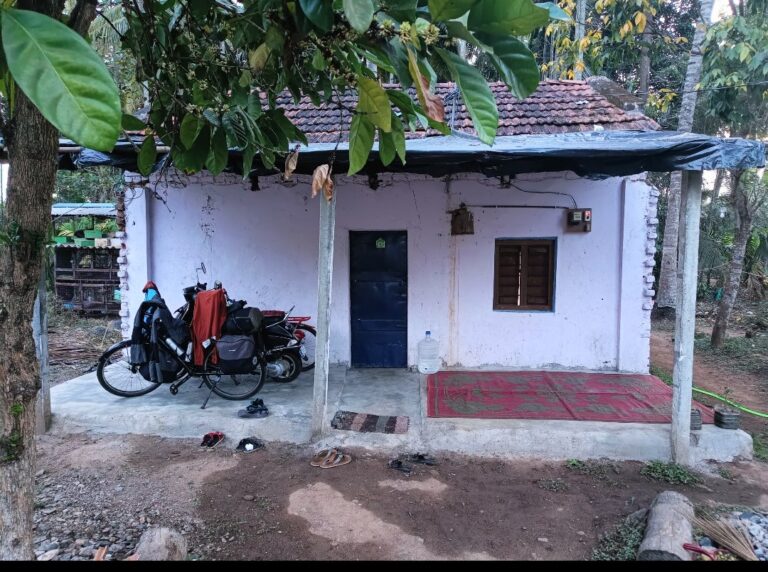
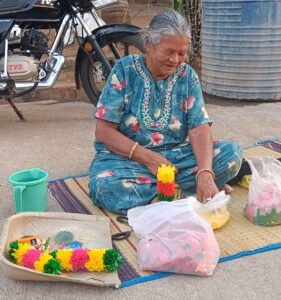

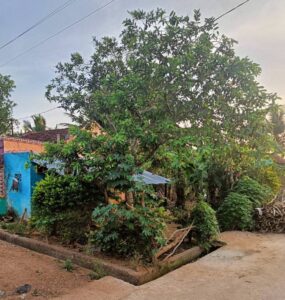
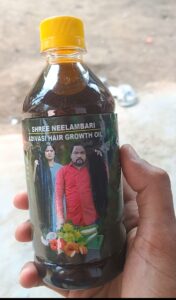
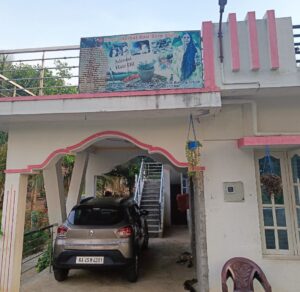
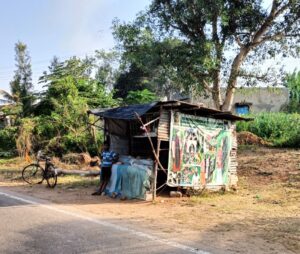
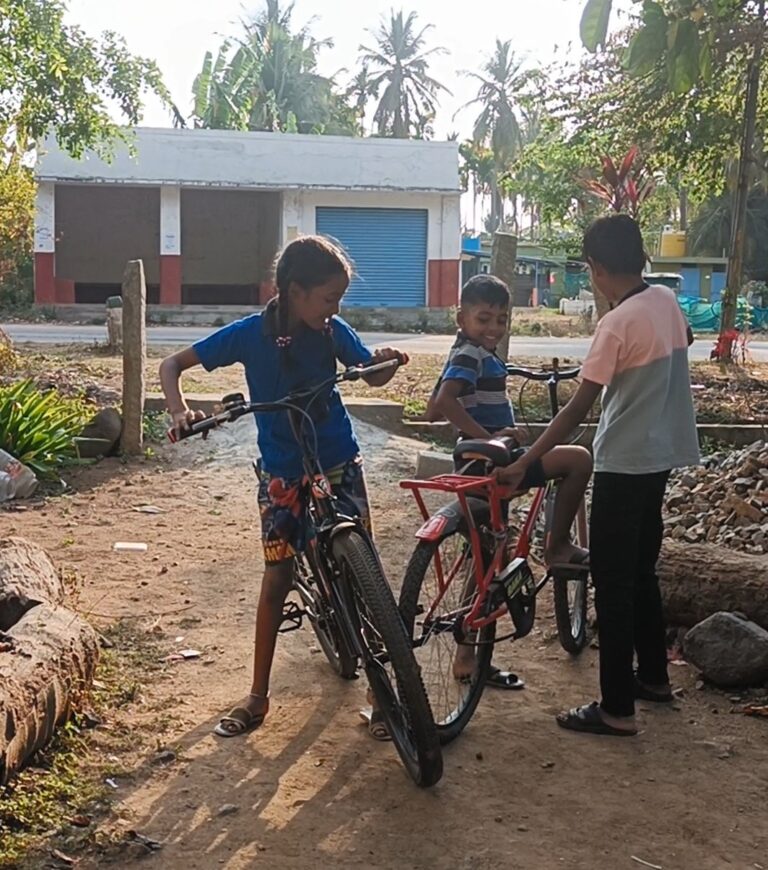

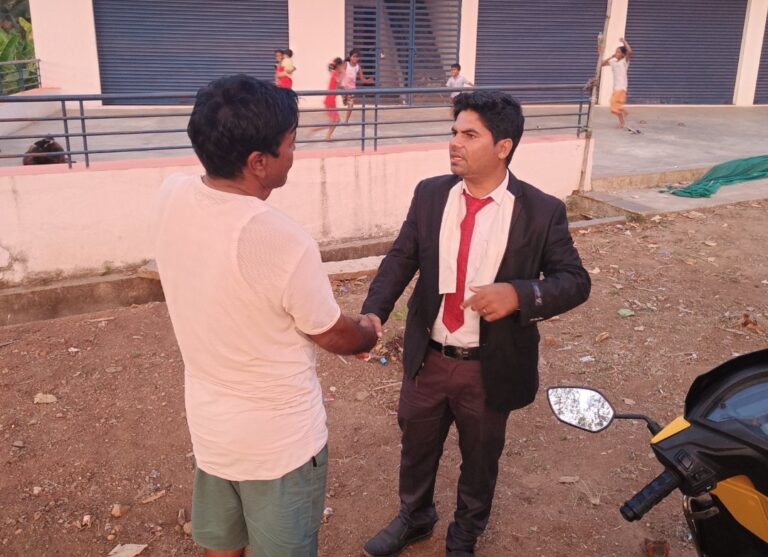
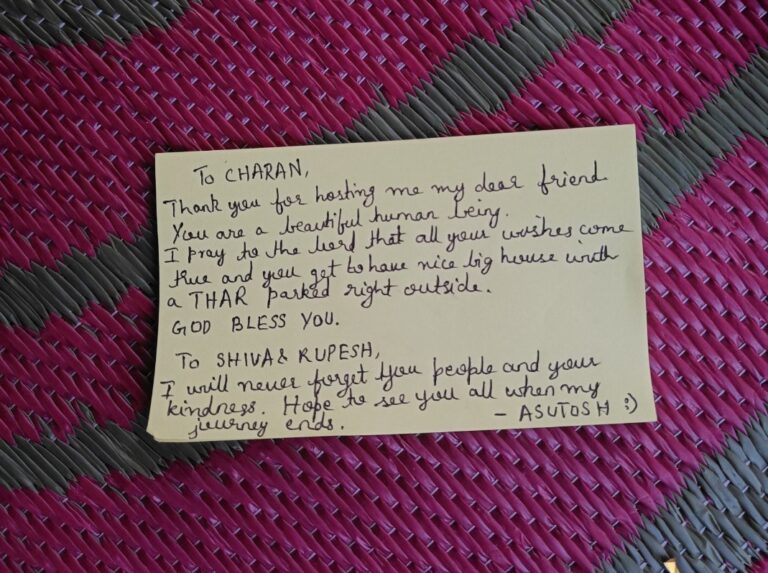
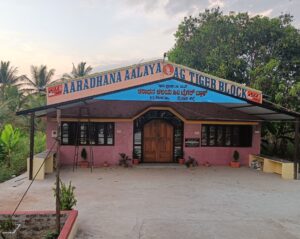
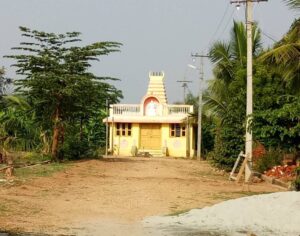
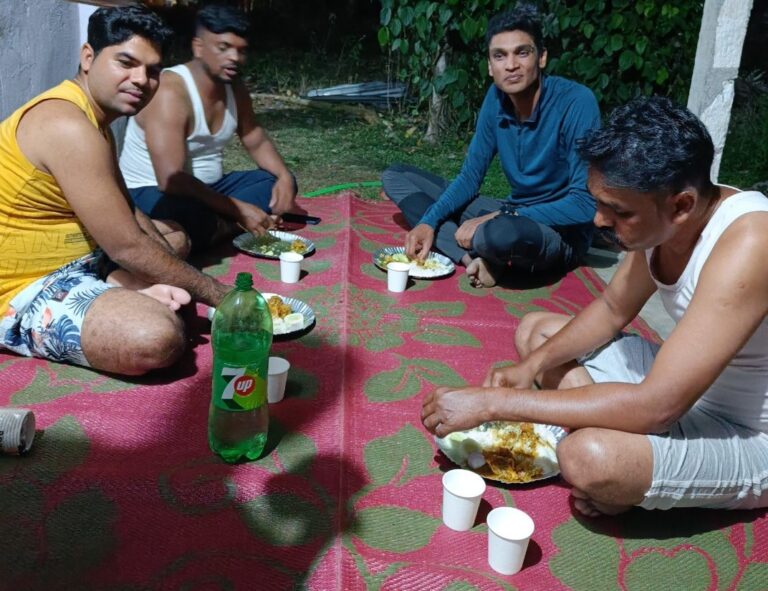
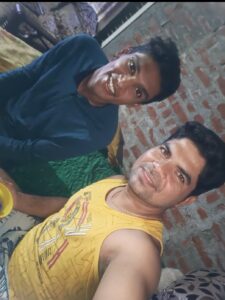
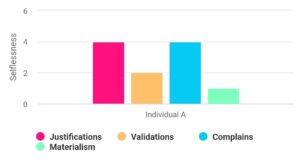
Once again, this is a mind blowing encounter. I had not known anything about hakki pikki tribe except for using that word. This was an eye opener for me.